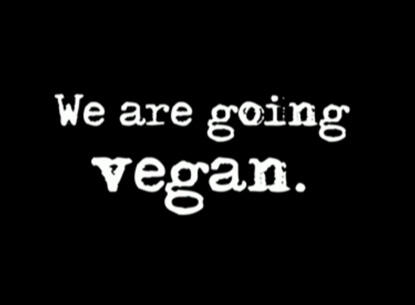
April 15, 2011
VCU Brandcenter Students go Vegan to 'Beet' Cancer
Share this story
Chipotle has loomed large on the hazy horizon for weeks for Schuyler Hunt, a first-year graduate student in the creative technology track at the VCU Brandcenter. For Catherine Dailey, a first-year studying creative brand management, it’s thoughts of cheese that she cannot shake. Amanda Lane, also a first-year creative brand management student, dreams of chicken wings with buckets of ranch dressing.
|
Beet Cancer official spot - Brandcenter from Schuyler Hunt on Vimeo |
On April 18, after a month break from any food that did not fit the vegan label, Hunt and Dailey, and about 30 others, will be able to break their self-enforced fast and return to their usual staple of foods. And they’ll have a few thousand dollars for cancer care and research to show for it.
The temporary vegans have been participating in Beet Cancer, a project devised by Hunt, Dailey and Lane to raise money for the American Cancer Society and Jay McCormick, a cancer patient in need of financial support. The project consists of Beet Cancer participants attracting donations through their determination to maintain a vegan diet for a 30-day stretch. So far the group has raised approximately $4,000 – far exceeding their modest goals. Even better, Neutrogena has agreed to match any donation they make to the American Cancer Society.
“We’ve blown away our expectations for this,” Hunt said.
Dailey explained that a form of food deprivation made sense for the project because it mirrors, in a small way, one of the hardships of chemotherapy treatments. Cancer patients undergoing chemotherapy often experience changes in their taste buds that make food unpalatable. Going vegan also requires participants to think about their food in a new way – to study lists of ingredients and to consider the source and content of everything they eat – making a simple, necessary act of survival something they no longer take for granted.
“This is a way to show how much willpower and strength it takes to be treated for cancer,” Dailey said. “It shows how much energy it takes for them to survive.”
Of course, there are practicing vegans very happy and satisfied with their dietary restrictions who might not see what the big deal about a month mimicking their lifestyles is. Veganism, for them, is not about restraint. These Beet Cancer participants, for the most part, are not so sanguine.
“There have been a lot of hunger pains,” Hunt said.
Lane said the response to the project has been “very overwhelming in a positive way.”
“It seems like we’ve really moved some people,” Lane said. “That inspires us to keep going.”
The students said their work at the VCU Brandcenter proved to be the ideal preparation for developing Beet Cancer. The project’s website, http://beetcancer.org/, is a lively, interactive online home with multimedia features, including a television spot built by students. There’s a Twitter account -- @beetcancer – too. The inspirations for Beet Cancer, McCormick and John Dailey, Catherine’s father who is battling skin cancer, are featured on the site, their stories serving to personalize the large topic Beet Cancer confronts.
Dailey said lessons at the Brandcenter in digital engagement, encouraging interaction with a brand and creating a viral conversation “perfectly plays into what we’re doing here.” Lane said Beet Cancer has created an online community where people talk with each other about a common topic, sharing their experiences and advice with each other.
Beet Cancer has also received particular support within the advertising industry, especially from the Richmond-based Martin Agency, which has worked with the American Cancer Society on campaigns.
Hunt said the project demonstrates the variety of work that the advertising industry does – something the Brandcenter emphasizes through assigned projects.
“Advertising doesn’t have to be about getting more kids to buy more Pepsi,” Hunt said. “It can also be about getting a really important message out to people and helping create some change.”
Beet Cancer organizers said they are considering turning the project into an annual event.
Subscribe to VCU News
Subscribe to VCU News at newsletter.vcu.edu and receive a selection of stories, videos, photos, news clips and event listings in your inbox.









